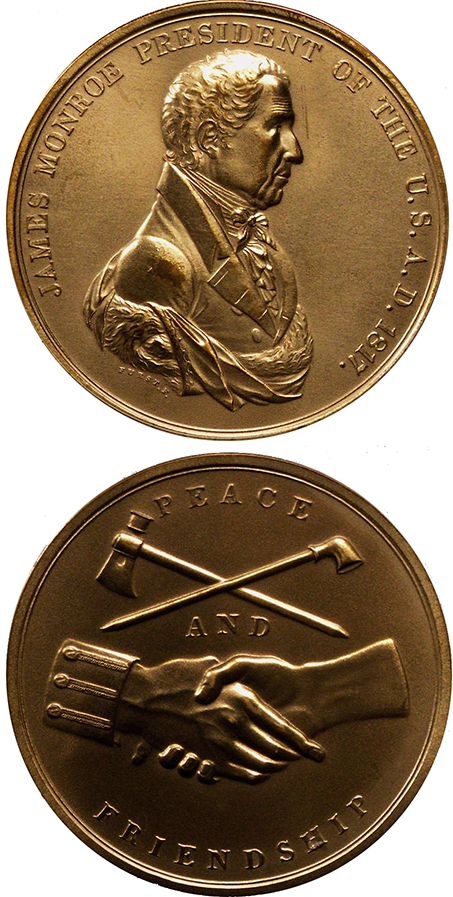US Treaties with American Indian Nations
by Gautham Rao
 After the American Revolution, the United States and Indian tribal nations governed their diplomatic relations through formal treaties. States could not be signatories to these treaties because the US Constitution required that only the federal government bear responsibilities for this type of diplomacy. Beginning with the first of these treaties, the Delaware Tribe Treaty, in 1778, commissioners negotiated only on behalf of the United States federal government, and not the state governments.[1] These treaties closely resembled the United States treaties with foreign nations.
After the American Revolution, the United States and Indian tribal nations governed their diplomatic relations through formal treaties. States could not be signatories to these treaties because the US Constitution required that only the federal government bear responsibilities for this type of diplomacy. Beginning with the first of these treaties, the Delaware Tribe Treaty, in 1778, commissioners negotiated only on behalf of the United States federal government, and not the state governments.[1] These treaties closely resembled the United States treaties with foreign nations.
Between 1778 and 1868, the United States entered into thirty-one treaties with American Indian tribes, almost all of which were ratified by Congress. At first, the language and terms of the treaties reveal, the United States prioritized peaceful relations and clear geographical boundaries with Native Americans. Consider, for example, the 1791 treaty with the Cherokee Nation, the stated goal of which was “establishing permanent peace and friendship.” Yet even in this early example with the Cherokee Nation, the United States racist assumptions about Natives is also evident. For example, the treaty concludes that the United States would try to lead the Cherokees to “a greater degree of civilization” by making them “herdsmen and cultivators” instead of just “a state of hunters.”[2] By the 1830s, the nature and terms of the treaties had become far more coercive toward American Indians. White settlers moving into Indian lands in large numbers caused significant violence, and the United States eventually backed the settlers through treaties that forced tribal nations to cede their ancestral lands.
Meanwhile, and even though the US Constitution specified that only the federal government could regulate affairs with American Indian tribal nations, state governments tried to help White settlers in their effort to seize Native lands. The historian Claudio Saunt identifies how in the 1820s Tennessee, Alabama, Mississippi, and Georgia’s “extension” laws asserted state authority over tribal nations’ citizens in different ways.[3] These state extension laws were a turning point in US relations with Native tribes. Would the United States honor its commitment to tribal nations or allow White settlers and state governments to interfere with tribal members? President Andrew Jackson supported the states’ actions and took no measures to reassert the federal government’s constitutionally based exclusive authority to negotiate with Indian tribes. Jackson’s policy of inaction was magnified after the US Supreme Court’s decision in the 1832 case, Worcester v. Georgia, that found Georgia’s law against Native rights to be unconstitutional. Jackson, however, failed to enforce the Court’s decision, and in effect gave a green light to Georgia and other states to continue to allow White settlers to seize Native lands. As a result, the 1830s witnessed White settlers and the state and federal governments forcibly remove Natives from many of their ancestral homes, most notably in the Cherokees “Trail of Tears” in 1838.
[1] “Artl.S8C3.9 Commerce with Native American Tribes: Scope of Authority,” Constitution Annotated, US Congress, constitution.congress.gov/browse/essay/artI-S8-C3-7/ALDE_00012976/; Treaty with the Delawares, 1778, The Avalon Project: Documents in Law, History and Diplomacy , Lillian Goldman Law Library, Yale Law School, avalon.law.yale.edu/18th_century/del1778.asp.
[2] Treaty with the Cherokee, 1791, The Avalon Project: Documents in Law, History and Diplomacy , Lillian Goldman Law Library, Yale Law School, avalon.law.yale.edu/18th_century/chr1791.asp.
[3] Claudio Saunt, Unworthy Republic: The Dispossession of Native Americans and the Road to Indian Territory (New York: W.W. Norton & Co., 2020), 36–42.
Gautham Rao, an associate professor of history at American University, is a legal historian of Revolutionary America and the early American republic. He is the author of National Duties: Custom Houses and the Making of the American State (2016) and the editor of Law and History Review.